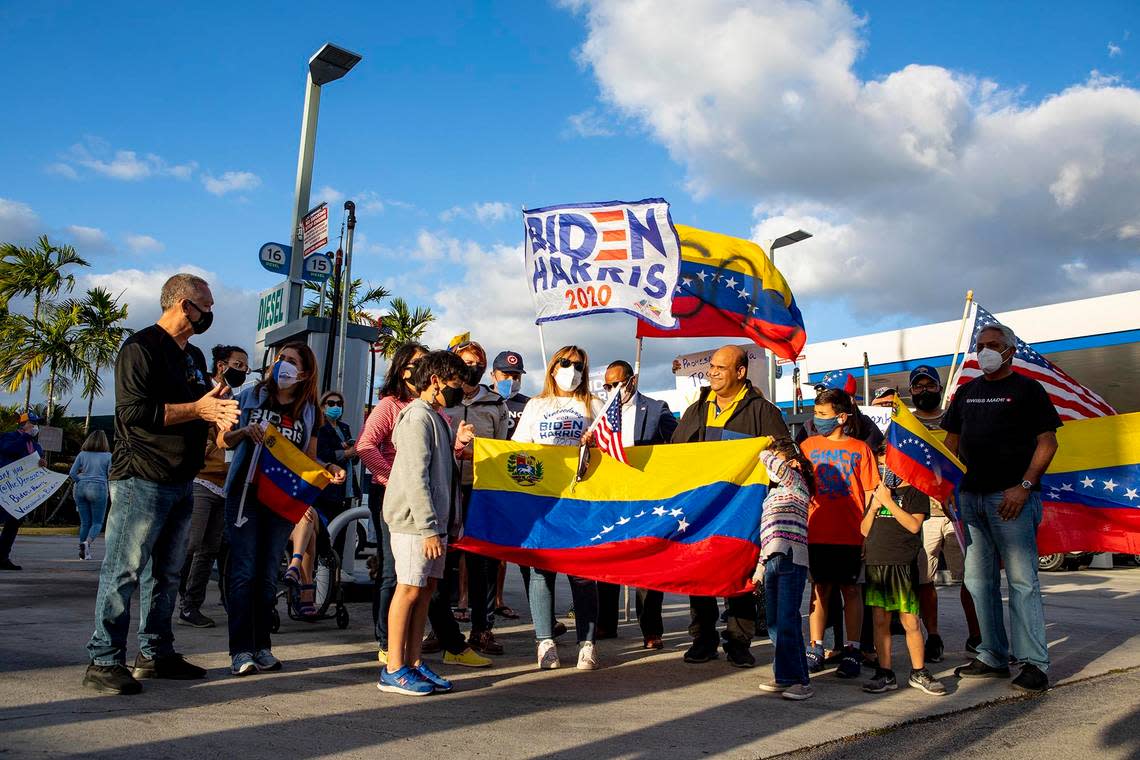Florida has the largest number of immigrants protected from deportation. Here’s why

- Oops!Something went wrong.Please try again later.
Florida has the highest number of immigrants in the U.S. who are protected from deportation because of dangerous conditions in their home countries, according to federal data.
There were 295,720 recipients of Temporary Protected Status in Florida as of March 31 of this year, according to a Congressional Research Service analysis of data from the Department of Homeland Security. That’s more than a third of the 863,880 nationwide total, according to the federal agency, which provides policy analysis for Congress.
DHS Secretary Alejandro Mayorkas has the authority to designate a country for TPS, which allows people whose countries are experiencing devastation from natural disasters and conflict to stay in the U.S. To qualify, people must have already been in the U.S. before a certain cutoff date.
The number of TPS recipients in Florida has more than quadrupled in the past three years, up from about 65,000 in April 2021. The explosion is a reflection of the current administration’s expansion of the program for several countries. The next largest populations of TPS holders live in Texas (93,680), New York (67,840), and California (67,800) — meaning Florida surpasses them by hundreds of thousands of recipients.
The researchers estimates that nearly all TPS beneficiaries in Florida are from Venezuela and Haiti. Over half of all recipients nationwide also hail from the two countries.
The Biden administration first granted Temporary Protected Status for Venezuela in 2021. Two years later it included another half-million people under a September 2023 expansion, which experts and activists consider to be the largest single designation in the program’s history.
In Haiti’s case, the Biden administration announced a TPS redesignation for Haiti in July 2021, weeks after President Jovenel Moïse was assassinated. Haitians migrants in the U.S. first received the protections after the devastating earthquake in January 2010. The Congressional Research statistics do not include the most recent TPS expansion for Haiti, announced last month, which DHS estimates will benefit an additional 309,000 Haitians. That means the number of beneficiaries in Florida is bound to grow as violent armed gangs continue to plague the Caribbean nation.
Temporary Protected Status does not provide a permanent legal pathway to stay in the United States. And administrations can decide not to renew the protections. Former President Donald Trump moved to end the program for several countries, including Nicaragua, Honduras, and El Salvador, a termination the Biden administration reversed.
In South Florida, activists have led a years-long campaign to expand Nicaragua’s Temporary Protected Status, which covers only those Nicaraguans who arrived before Jan. 5, 1999. The Clinton administration designated Nicaragua for the program because of the devastation that Hurricane Mitch wrought in Central America.
As of early July, the Department of Homeland Security has not updated any TPS designations, according to an agency official. Nicaragua’s current TPS designation ends in July 2025. Mayorkas is required under federal law to make a decision on a designation at least two months before its expiration date.
Besides expanding TPS, President Joe Biden has also used his executive authority to create a parole program for Cubans, Haitians, Venezuelans and Nicaraguans to live and work in the U.S for two years.
White House and DHS officials have said they’ve resorted to such immigration measures because Congress has not approved immigration reforms.
Republican-led states, including Florida, sued the administration over the parole program, arguing it was unconstitutional. A federal judge ultimately upheld it. The GOP governors did not challenge a similar program that allows Ukrainians to come to the U.S. after Russia invaded the Eastern European country.

